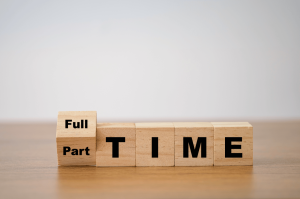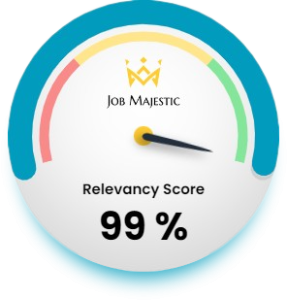Job searching is a difficult thing, and especially if it is while interviewing for a position. At the end of which are interviews that are often the final hurdle to gain that dream job, knowing all the various formats in which you might do it will definitely help you perform well. There are two types of interviews; sequential interviews and panel interviews. They all have their own structure, advantages and disadvantages. In the rest of this blog post, we’ll walk you through the key differences between these two interview formats, and offer actionable advice on what to focus on from each.
Understanding Sequential Interviews
What are Sequential Interviews?
A series of one on one interviews, as mentioned, is a sequential interview. However, according to DeGarmo, candidates are typically interviewed by multiple people within the hiring organization who tend to concentrate on specifics regarding the candidate’s qualifications and skills, as well as their appropriate fit for the role. It gives interviewer more time for more in-depth assessment, because each interviewer can focus on his or her areas of expertise or concern.
Sequential Interviews Have Which Advantages?
Another big advantage when it comes to sequential interviews is that candidates have a chance to get to know the interviewers. You can have a connection with the interviewer as you progress through the interviews and hopefully, it helps you to get feel more comfortable and confident etc. This format further also allows the interviewers to evaluate the candidates from different angles resulting to a wider evaluation.
The second benefit is the flexibility of scheduling. It usually can be arranged to interview people sequentially so they don’t conflict in availability and everyone involved can be fit in for an interview.
Challenges of the Sequential Interviews
There are, however, problems with sequential interviews. There’s one potential downside in fatigue. Energy is an important facet of good performance after a couple of interviews when those same candidates have trouble maintaining their enthusiasm. Stamina must be managed and you have to stay engaged through the whole process.

Understanding Panel Interviews
What Are Panel Interviews?
On the otherhand, panel interview requires more than one interviewer, in order to assess a candidate simultaneously. In this format it is common to have representatives of different departments or levels in the organization so that you have a range of perspectives. From roles that need to collaborate cross teams, panel interviews can sometimes be particularly useful as an organization looking for a new hire can gain insight into what the first day should be like.
Advantages of Panel Interviews
The efficiency of panel interviews is one of the most important of their advantages. The interviews can be done by a number of interviewers in one on meeting rather than through multiple one on one interviews. Not only is this efficient for both parties but also gives feedback and decision making in real time.
Panel Interviews: Challenges
But panel interviews can be intimidating. Multiple interviewers can be a problem in and of itself, as it can put pressure on a candidate to not say what they really want to, not being able to be properly mindful. A panel can have very different dynamics: If one or two people are speaking, they may be monopolizing the conversation and blocking others from asking their questions or offering input.
Key Differences Between Sequential and Panel Interviews
Format and Structure
The most obvious difference of sequential and panel interviews is their format. One on one interview is carried out through sequential interviews, whilst panel interview is done through multi interviewers in a group setup. This fundamental difference alters how the interview flows, and what the candidate’s experience feels like.
Assessment Style
Normally, each interviewer only focuses on a particular area of the candidate’s qualifications so that more detailed assessment can be made in the sequential interviews. What it means is that you can create responses that focus on the interest of each interviewer and hopefully give you a more favorable evaluation. As opposed to panel interviews, candidates of panel interviews often have to discuss a wider range of questions from different points of view resulting into a more holistic analysis. That is beneficial because that way you can show you’re a versatile person, you adapt very well in time.
Candidate Experience
The candidate experience can be many times different for the two formats. If the interview is sequential, candidates can have one more personal touch with each interviewer. It will allow you to express yourself more freely because of more relaxed atmosphere. Now on the other hand, panel interviews can be more tedious, because there is more than one interviewer, which can make you feel pressure. It can be daunting to engage with multiple people at once, however it creates a window for you to show that you can work well in a high stakes environment.

How to Excel in Sequential Interviews
Preparation Tips
To excel in sequential interviews, you need to have prepared for them. First, do your research on each interviewer and find out what position they hold in the company. Knowing their background and where they stood could help you respond better to what they talked about. In addition, it is a good way to practice answering a common interview question, but know that you will modify your response to meet the particular focus of each interviewer.
During the Interview
It’s important to build rapport with each interviewer. You can take the time to enter into small talk and make a connection. It can make you feel better and give you a good first impression. Sure, it’s important to come up with consistent responses, but don’t be afraid to tailor your answers to what each interviewer is interested in. Let’s say that you know that one of the interviewers is very interested in your technical skills, then you want to emphasize those parts of your experience.
Post-Interview Follow-Up
After the interview send personalized thank you notes to each interviewer. Show them that you value their time by stating certain points in your conversation that resonated with you. By doing this you not only prove your interest in the position, but also the fact you are able to pay attention to detail and think on your feet.
How to Excel in Panel Interviews
Preparation Tips
Before going for a panel interview it’s important to prepare oneself for the composition of the panel and the involvement of each kind of panelist in the interview. Find out who they are and wonder if their backgrounds may affect what they ask. To prepare you more and be more confident practicing responses to potential questions from multiple angles is sometimes helpful.
During the Interview
It is also important for each panel member to engage. Look at each interviewer in the eye and speak to the group as a whole instead of just to the lead interviewer. Then this shows you value all panel members input and also that you can handle different perspectives.
You also have to take the nerves in hand, use deep breaths and remind yourself the panel is there to gauge whether you match the role or not to intimidate you. It’s okay to take a moment, to take a breath, if you feel overwhelmed. You’ll say the right thing after.
Post-Interview Follow-Up
Following a panel interview, write a thank you note to the full panel. As you known the group dynamic, mention the specific discussions you found interesting. Not only is this going to reinforce that you’re interested in their company, it also proves you were actively involved in the interview.
If, after a response from the panel, whether positive or critical, you receive some feedback, take it on board and build it into any follow-up you put together. That shows that you’re willing to learn and grow which will stay with them.

Conclusion
Overall, there is a sequential and panel interview a difference that has it’s own structure to it’s benefits and drawbacks. Knowing these differences will make you better at going through the process. Interviews in sequence are more personal and help an in depth assessment, while panel interviews are more efficient and have more diverse points of view.
Ultimately, you have to take it one step at a time, whether it’s in a panel or a relational interview; it’s all about the positive mindset. Every interview is a learning opportunity, and by being prepared, but more importantly ready to learn and grow with every interview you do, you increase your chances of being successful, closer to your dream job.
![]()






